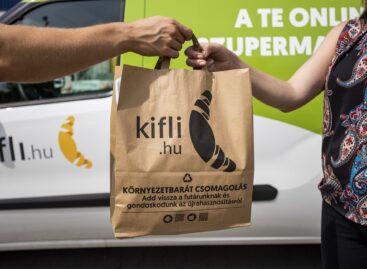The customer is the important to everyone, everywhere, at all times – We were learning together (Business Days 2024 Part 1)
Wednesday morning of the Business Days conference, the topic was a general market assessment of the past year and a half, in the light of the shopping habits of households in e-commerce. Three presentations gave an overview of the situation in Hungary, which were followed by a roundtable discussion moderated by Emília Krug.

This article is available for reading in Trade magazin 2024/11
Pockets rattling with change – but is this the case everywhere?

Tünde Turcsán
managing director
GfK-YouGov Consumer
Panel Services
Tünde Turcsán, managing director of GfK-YouGov Consumer Panel Services pointed out that consumer confidence and the financial situation in Hungary are far below the European average, with 76% of Hungarians consciously looking for bargains when shopping. In 2023 promotional sales increased by 36% in value and private label sales grew by 27% in FMCG.
People are still worried about inflation the most
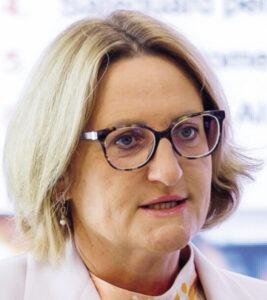
Anita Mekler
partner
PwC Magyarország
Anita Mekler, a partner at PwC Magyarország shared the latest results of the “Voice of the Consumer” survey. Inflation is the biggest concern, with 77% of Hungarian respondents saying it is the top challenge. Getting value for money is another very important factor, cited by 42%.

Norbert Madar
senior manager
PwC Magyarország
Norbert Madar, senior manager of PwC Magyarország told: 4 million Hungarians regularly shop online and the Hungarian e-commerce market still has a 15% growth potential. Sales in the first half of the year reached HUF 810bn, from which HUF 140bn was generated by foreign players, with Temu alone responsible HUF 50bn. The strongest competitors in the domestic market are Kifli and Alza.
The online FMCG market has grown by 23%, showing outstanding growth potential. Kifli, Tesco and Auchan are the leaders of the FMCG segment, followed by DM and Rossmann.

Ákos Forrás
country manager
Alza.hu
In the roundtable discussion Ákos Forrás, country manager of Alza.hu told that in home delivery the conquest of parcel lockers makes it easier for shoppers to plan their day, which they value very much alongside speedy delivery.

Gábor Papp
head of online business
Tesco
Gábor Papp, head of online business at Tesco said they are satisfied with their annual performance, but there is still a lot of potential in terms of penetration in the countryside, as Tesco’s services are already available in nearly 900 municipalities.
.

Tibor Székács
CEO
Avokado
Avokado offers shoppers the possibility to get the products they want (often “love brands” not available elsewhere) from different retailers with a single order, in a short time, saving them the time otherwise spent shopping in stores.
CEO Tibor Székács told that building customer loyalty and enhancing the customer experience are priorities for them. The main tools for this are plannability and predictability.

Rita Szalma
commercial director
Kifli.hu
Rita Szalma, commercial director of Kifli.hu, doesn’t believe that there is only potential for online expansion and building customer confidence in the countryside, because there is still great potential in Budapest too. Kifli pays particular attention to premium products and serving niche markets, with a focus on speciality food items and organic products (even fresh ones from small local suppliers).

Ádám Fürjes
head of webshop
Rossmann
In 2023 the Rossmann online shop grew well above the market average, according to head of webshop Ádám Fürjes. Strengthening their rural presence is a key objective this year, trying to achieve greater territorial coverage with lots of smaller stores, but they can’t compete with the larger chains everywhere. A product subscription system has been introduced to meet customer demand, but so far this service has had a mixed reception.

László Varga
sales and marketing director
DPD
Home delivery continues to dominate the domestic market, but demand for parcel lockers and parcel collection points is growing. László Varga, sales and marketing director of DPD pointed out that DPD is the only courier service provider in Hungary to offer a dedicated one-hour time slot. One of their new services is DPD Fresh, which offers the guaranteed next-day delivery of fresh food under normal courier conditions, using a passive cooling process.
On Wednesday afternoon the programme began at the Logistics and Transport Department of the FMCG Open University. Emília Krug continued to act as moderator throughout the day.
The first roundtable of the afternoon concentrated on a general market assessment of the past year and a half and discussed future opportunities.

András Táncsics
CEO
Boxy
András Táncsics, the CEO of Boxy told: in the first two years of the last three-year period cumulative growth in e-commerce was 80%, with almost everything selling. This trend reduced the importance of efficiency, but the situation has dramatically changed by now, with the entry of a Chinese giant using high-quality marketing and logistics solutions. The change will be even more serious if it reaches the FMCG sector.
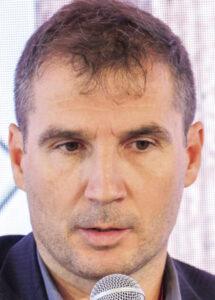
Szabolcs Czifrik
CEO
DPD
Szabolcs Czifrik, the CEO of DPD pointed out that consumer preferences have been changing rapidly since the COVID period, with more and more shoppers choosing fixed point delivery options (parcel lockers and parcel points) instead of home delivery. DPD’s goal is a high level of automation. Automation and digitalisation are key to cost efficiency.

Dr. Zoltán Doór
president
Hungarian Logistics Association
When choosing logistics partners, price is the No.1 consideration, said Dr Zoltán Doór, president of the Hungarian Logistics Association. However, customers are also paying more attention to the environmental impact than before. They are already taking ESG considerations into account, opting for the lowest-impact logistics service provider if the price is the same.

Nikoletta Kiss
owner and CEO
Palmsped
Nikoletta Kiss, owner and CEO of Palmsped stressed that cost efficiency is a priority for many, but trust and reliability are also essential. If a service provider keeps its promises, partners are willing to pay a higher price. Rapid reaction, accurate and continuous information are expected in the market.

Gergely Lakatos
business development and marketing manager
MHC Mobility
Gergely Lakatos, business development and marketing manager at MHC Mobility underlined that measuring CO2 emissions is crucial in ESG planning, and it isn’t enough to do it within the company, as Scope 3 emissions are becoming critical for large firms.
MHC Mobility has compiled a matrix of 27 simple tips on how companies can curb their environmental impact.
To do it or not to do it?

Irén Márta
managing director
Business Council for Sustainable Development in Hungary
Next the spotlight was on sustainability status reports. Irén Márta, managing director of the Business Council for Sustainable Development in Hungary gave a presentation on three main topics: the global sustainability landscape, regulatory challenges and positive examples. The circular economy is fundamental if we want to achieve the sustainability goals. We have no choice: we need to meet growing demand more efficiently with fewer resources.

Szabolcs Pattzai
country manager
Blue White Heart
Szabolcs Pattzai, country manager of Blue White Heart highlighted four main food trends: speciality foods (gluten-free, lactose-free), plant-based diets, sustainable foods and health-conscious eating. The organisation wishes to combine the latter two, with Martontej and Auchan among its partners. Blue White Heart excludes imported soy and palm oil and uses local ingredients instead.
System launch with lots of challenges

Csilla Zombory
head of quality and environment
SPAR
Another roundtable followed where Csilla Zombory, head of quality and environment at SPAR shared the challenges of the first year of the deposit return system (DRS). They had a very short time to prepare after the legislation had been published. Reverse vending machines had many faults and stores had to take back drink containers manually. Right now the biggest challenge is logistics: shops don’t have the capacity to store the millions of returns per day.
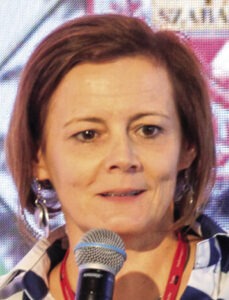
Szilvia Szabó
head of producer responsibility systems
MOHU
Szilvia Szabó, head of producer responsibility systems at MOHU Zrt. told that according to some estimates 8.5-9 million bottles are put on the market daily in Hungary, and the goal is to increase the return rate to 90% within three years. From 1 January to the end of September 2024 385 million bottles were returned. As part of the network expansion, hundreds of new reverse vending machines are installed across the country this year.

László Büki
honorary president
Association for Sustainable Packaging
László Büki, honorary president of the Association for Sustainable Packaging and founder of BS Plastic stressed that it isn’t the material of the packaging that determines its sustainability, but its life cycle. It is a misconception that paper is automatically more environmentally friendly than plastic, as paper production also has a big environmental impact.
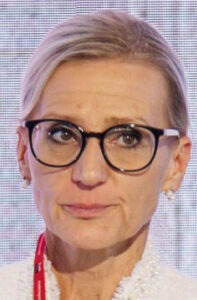
Bernadett Strasser-Kátai
owner and CEO
Real Nature
Bernadett Strasser-Kátai, owner and CEO of Real Nature spoke about the importance of sustainable packaging, pointing out that her company uses 89% sustainable materials such as rPET and paper. While they are open to all new solutions, the most important thing is to keep fresh food fresh in the right packaging.
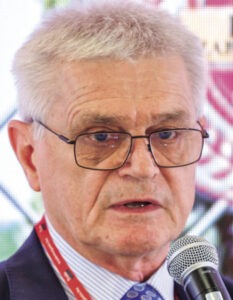
Miklós Nagy
technical secretary
CSAOSZ
Miklós Nagy, technical secretary of the Hungarian Association of Packaging and Materials Handling (CSAOSZ) gave background information on the upcoming packaging regulation, PPWR, which has been adopted by the European Parliament but hasn’t entered into force yet. It will make reusable or refillable packaging mandatory for around ten product categories, for example for large household appliances, with a 90% share from 2030.

Ildikó Balázs
co-president
National Trade Association
According to Ildikó Balázs, co-president of the National Trade Association and director of corporate affairs at Auchan, the three key areas of sustainability challenges at the moment are DRS, food rescue and the EU’s deforestation regulation, EUDR. With regard to the latter, it is important that every retailer and supplier – whose cooperation is essential – is at the same information level.
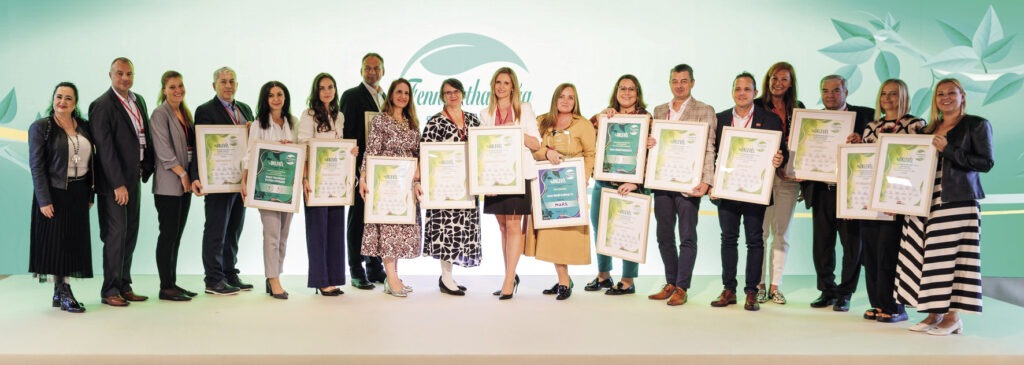
This was the fifth time this year that the Symbol of Sustainability awards were presented for exemplary efforts for sustainability that demonstrate companies’ ESG activities. This year’s title of Sustainability Ambassador was awarded to Csilla Zombory, Head of Quality and Environmental Management at SPAR, who was nominated by the National Trade Association for her sustainability work for the whole industry. Congratulations to each and every winner!
Environmentally friendly solutions
Three presentations followed after the roundtable discussion.

Niklas Kothbauer
senior trade marketing manager
Erdal (Austria)
Werner & Mertz was founded in 1867 and it is a leader in manufacturing environmentally friendly cleaning products. Niklas Kothbauer, senior trade marketing manager at Erdal (Austria) highlighted the company’s commitment to sustainability and innovation in ecological cleaning products, especially through their Frosch brand. Their top innovations include the Frosch Mondi sachet and the 3R trigger.

László Tóth
sales manager
Smurfit Westrock
László Tóth, sales manager at Smurfit Westrock talked about the sustainability benefits of paper packaging in his presentation. Smurfit Westrock’s experience is that switching to paper packaging isn’t only environmentally friendly, but can also have marketing, cost reduction and economic benefits.

Attila Kisfali
subregional sales, marketing and innovation director
DS Smith
Attila Kisfali, subregional sales, marketing and innovation director of DS Smith explained that the EU’s new environmental directives, in particular PPWR, are bringing major changes to the packaging sector. The objective is to make all packaging recyclable by 2030. DS Smith is already offering innovative solutions such as Light Wrap. In the evening, the focus was on the labour market.

Attila Fülöp
state secretary for care policy
Ministry of the Interior
Attila Fülöp, state secretary of the Ministry of the Interior responsible for care policy told in his presentation: Hungary has made significant progress in the employment of people with disabilities in recent years, with the employment rate growing from 18% to 50% over the past 25 years.
Internal integration is also necessary
Wednesday’s final roundtable put Attila Fülöp’s thoughts into a practical context.

Sándor Baja
managing director
Randstad
According to a survey by Randstad, 3.6% of the respondents said they had reduced work capacity, informed Sándor Baja, managing director of Randstad. In Hungary 45% of companies expect a rise in sales revenue this year, while the labour market is cooling and it is becoming easier to find workers.

Imre Rosner
head of the charity department
Szerencsejáték
Imre Rosner, head of the charity department at Szerencsejáték Zrt. told: for 21 years now, the company has been employing people with a reduced capacity to work – about 170 of them work as lottery ticket sellers in nearly 70 cities. An inclusive workplace approach and continuous integration are the company’s long-term values.

Norbert Túróczi
head of HR
Tesco
Norbert Túróczi, head of HR at Tesco revealed that presently employees with a reduced work capacity make up for 5% of the company’s workforce, but the goal is to increase this proportion. Although the integration of such employees can be supported by external awareness raising campaigns, internal acceptance should also be emphasised. //
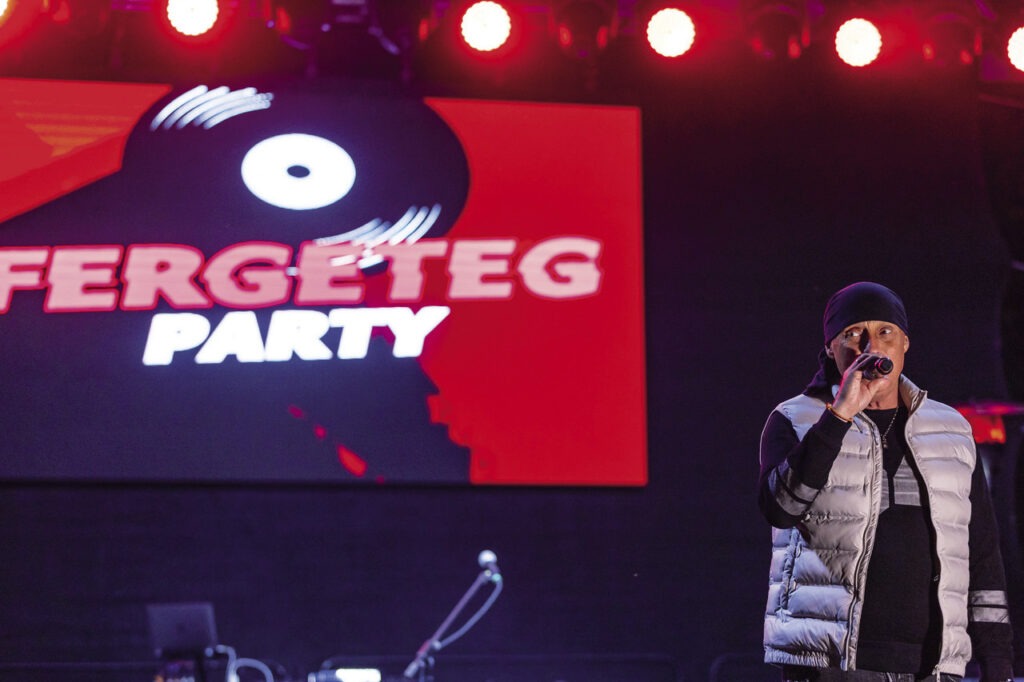
The Wednesday night BBQ party in the garden was backed up by a real “Fergeteg party” with a star-studded line-up of performers such as Rudi Krisz, Josh and Betti, Cory, Kozmix, Groovehouse, DJ Dominique and DJ Tomx
Click here to view more photos about Wednesday of the 2024 Business Days.
The event video is available to view here.
Related news
Nearly 140 domestic suppliers, 60% growth – SPAR Regions Treasures program accelerates with AI solutions
🎧 Hallgasd a cikket: Lejátszás Szünet Folytatás Leállítás Nyelv: Auto…
Read more >At K&H AI implementation is coupled with knowledge development
🎧 Hallgasd a cikket: Lejátszás Szünet Folytatás Leállítás Nyelv: Auto…
Read more >Related news
II. Green Gastronomy – Marketing Communication Workshop organized by the MMSZ HoReCa and Green Section
🎧 Hallgasd a cikket: Lejátszás Szünet Folytatás Leállítás Nyelv: Auto…
Read more >Nearly 140 domestic suppliers, 60% growth – SPAR Regions Treasures program accelerates with AI solutions
🎧 Hallgasd a cikket: Lejátszás Szünet Folytatás Leállítás Nyelv: Auto…
Read more >



